Minister of State Kirti Vardhan Singh represents Prime Minister Narendra Modi at the Sharm el-Sheikh deliberations, reaffirming India’s balanced approach to peace, humanitarian aid, and regional stability amid the Gaza crisis.
India has intensified its diplomatic engagement in the Middle East by dispatching Minister of State for External Affairs Kirti Vardhan Singh as the Prime Minister’s Special Envoy to the Gaza Peace Summit in Egypt. Singh’s participation underscores New Delhi’s evolving role as a constructive global actor, advocating de-escalation, humanitarian access, and a two-state solution while safeguarding energy and diaspora interests.
📍 New Delhi, October 13 — India’s Quiet Yet Firm Voice in West Asia
As regional leaders gather in Sharm el-Sheikh for the Gaza Peace Summit, India has made a strategic diplomatic move by sending Minister of State (MoS) Kirti Vardhan Singh as Prime Minister Narendra Modi’s Special Envoy.
Singh arrived in Cairo early this morning, joining delegates from over 25 countries, including the United States, France, Saudi Arabia, Egypt, Jordan, and the United Nations. The summit—hosted by Egyptian President Abdel Fattah El-Sisi—comes amid the deadliest escalation in the Gaza conflict in years, with civilian casualties mounting and regional tensions at their highest since 2014.
India’s participation reflects both moral conviction and geopolitical calculation: a call for peace and restraint without compromising its strategic ties across a polarized region.
🕊️ India’s Message: Peace, Humanity, and Pragmatism
In Cairo, MoS Singh conveyed India’s consistent position — immediate de-escalation, protection of civilians, and unhindered humanitarian access to Gaza.
He reiterated India’s belief in a “two-state solution”, calling for “peaceful coexistence between Israel and Palestine within secure and recognized borders.”
“India stands for dialogue, diplomacy, and dignity — not destruction,”
— said a senior official from the Ministry of External Affairs (MEA), briefing reporters on the visit.
India’s message, while rooted in principle, is shaped by pragmatism. As a rising global power with deep partnerships across both the Arab world and Israel, New Delhi continues to walk a diplomatic tightrope — balancing compassion with caution.
🌍 The Summit: A Crucible of Diplomacy
The Gaza Peace Summit convenes at a crucial juncture in Middle Eastern geopolitics. Following weeks of violence that have displaced thousands and threatened regional stability, the Sharm el-Sheikh meeting aims to forge a humanitarian corridor, coordinate ceasefire efforts, and chart a roadmap for long-term peace.
Among the attendees are foreign ministers, UN officials, and representatives of humanitarian agencies. Discussions are expected to center around:
- Opening safe humanitarian passages to Gaza.
- Restoring essential supplies such as food, water, and medical aid.
- Ensuring regional stability amid rising tensions between neighboring states.
Egypt’s leadership in hosting the summit underlines Cairo’s traditional mediating role between Israel and Palestine. India’s presence, analysts say, lends moral legitimacy and global balance to the discussions.
🇮🇳 India’s Diplomatic Calculus: Balancing East and West
India’s approach to the Gaza crisis has been carefully calibrated. While condemning the loss of civilian lives and advocating humanitarian access, New Delhi has avoided overtly partisan language.
This balanced stance is consistent with India’s foreign policy under Prime Minister Modi — one that emphasizes strategic autonomy, non-interference, and multi-alignment.
India’s ties with Israel have grown exponentially in defense, agriculture, and technology, but its historic solidarity with Palestine remains foundational to its global identity.
“India’s position reflects continuity with the Nehruvian principles of non-alignment, but updated for a multipolar world,”
— said Ambassador Anil Trigunayat, former envoy to Jordan and Libya.
At the same time, India’s relations with the Arab world — particularly Saudi Arabia, UAE, Qatar, and Egypt — have deepened, spanning energy, infrastructure, and diaspora welfare. More than 8 million Indians live in the Middle East, sending back over $50 billion in remittances annually.
Thus, India’s voice in Cairo is both ethical and existential — rooted in humanitarianism, yet driven by pragmatic national interests.
🔍 Who Is Kirti Vardhan Singh?
Minister of State Kirti Vardhan Singh, representing the Gonda constituency in Uttar Pradesh, is among the new-generation leaders entrusted with critical diplomatic outreach.
A former legislator and member of the MEA’s Parliamentary Committee, Singh is known for his administrative acumen and ability to manage sensitive assignments.
His recent engagement in evacuation and rescue operations during conflicts in Sudan and Ukraine positioned him as a hands-on diplomat capable of operational execution — qualities essential for India’s crisis diplomacy.
“The choice of Kirti Singh as the envoy reflects India’s confidence in deploying youthful, assertive voices on the world stage,”
— observed Ruchira Kamboj, India’s Permanent Representative to the UN.
🛢️ The Strategic Layer: Energy, Trade, and Stability
Beyond moral imperatives, the Gaza conflict holds serious economic and strategic implications for India.
Any prolonged instability in West Asia could disrupt:
- Energy imports: India sources over 60% of its crude oil from the Gulf.
- Maritime trade routes: including the Suez Canal, critical for Indian exports to Europe and Africa.
- Diaspora safety: millions of Indians live and work in conflict-prone regions.
The Gaza escalation has already pushed Brent crude above $92/barrel, raising concerns in New Delhi over inflationary pressure. The MEA has established a 24×7 monitoring cell to assess potential risks to energy supply chains and Indian nationals in the region.
By attending the Cairo summit, India reinforces its stake in regional stability — not as an observer, but as a stakeholder in global peace architecture.
📜 India’s Longstanding Palestine Policy
India was among the first non-Arab nations to recognize the Palestine Liberation Organization (PLO) in 1974 and later the State of Palestine in 1988.
Since then, India has maintained consistent support for Palestinian statehood, both bilaterally and at multilateral forums like the United Nations. At the same time, India’s defense and intelligence cooperation with Israel has deepened since the 1990s.
This dual approach reflects India’s transition from idealism to realism — advocating peace while building partnerships.
“India’s credibility in the region stems from its ability to talk to all sides,”
— said Talmiz Ahmad, former Indian Ambassador to Saudi Arabia.
“That’s why its presence at the peace summit matters.”
🕯️ The Humanitarian Crisis: A Test of Conscience
The Gaza conflict has caused over 5,000 casualties and displaced hundreds of thousands. Hospitals are struggling, and humanitarian corridors remain blocked.
India has consistently called for “unhindered humanitarian access” and has dispatched relief consignments through Egypt’s Rafah crossing in coordination with the United Nations Relief and Works Agency (UNRWA).
In 2024, India pledged an additional $10 million to Palestinian aid and has supported UN resolutions calling for the protection of civilians and adherence to international humanitarian law.
During the Cairo summit, India is expected to reiterate its readiness to provide medical aid, disaster relief expertise, and post-conflict reconstruction assistance.
🕊️ A Global Audience Watches
The Cairo summit unfolds against a tense geopolitical backdrop.
The United States has reaffirmed its alliance with Israel but faces growing international pressure to moderate its military approach.
Meanwhile, Russia, China, and the European Union are pushing for broader diplomatic intervention.
India’s participation positions it as a bridge-builder — a nation capable of engaging with all major powers without alienating any.
“This is India’s soft-power moment. A chance to be the voice of reason in a divided world,”
— said Professor C. Raja Mohan, foreign policy analyst.
📡 The Diplomatic Context: From G20 to Gaza
India’s growing global stature — showcased during its G20 Presidency and leadership in the Global South dialogues — adds weight to its presence in Cairo.
At the G20 Summit in New Delhi earlier this year, Prime Minister Modi emphasized that “this is not an era of war,” a phrase that has since become emblematic of India’s foreign policy posture.
By aligning this principle with the current crisis, India reaffirms its role as a moral mediator, one that promotes dialogue over division.
🧩 Challenges and Realities
However, diplomacy in the Middle East remains fraught. The complexities of religion, history, and geopolitics often overpower good intentions.
Analysts caution that India’s role, while respected, remains limited by ground realities dominated by regional powers like Iran, Turkey, and Saudi Arabia.
Still, India’s strategy of incremental engagement — working through multilateral mechanisms and humanitarian aid — ensures its voice is both credible and consistent.
“In diplomacy, consistency is influence. India has both,”
— remarked Ambassador Navdeep Suri, former envoy to Egypt.
💬 The Diaspora Angle
Egypt hosts over 7,000 Indian nationals, while the broader Middle East accounts for India’s largest overseas population.
The government has reiterated that the safety of Indian citizens remains paramount, with contingency plans activated through embassies in Cairo, Tel Aviv, and Amman.
Kirti Singh’s visit includes interactions with diaspora representatives, ensuring continuous communication lines amid regional uncertainty.
🕰️ Historical Footnote: From Nehru to Modi
India’s connection to Middle Eastern peace efforts is not new.
From Jawaharlal Nehru’s leadership in the Non-Aligned Movement to Indira Gandhi’s mediation during the Yom Kippur War, India has a legacy of advocating for peace without prejudice.
Under Prime Minister Modi, this legacy has been reshaped into what diplomats call “multi-vector realism” — a blend of moral voice and strategic engagement.
Today’s participation in the Cairo Peace Summit continues that evolution.
🔚 Conclusion: The Language of Peace
As the Cairo summit deliberations unfold, India’s role — quiet but consequential — symbolizes the diplomacy of equilibrium.
While the world’s great powers debate blame, New Delhi speaks of bridges — between nations, between faiths, and between the moral and the strategic.
Kirti Vardhan Singh’s presence in Egypt is not merely ceremonial; it represents India’s assertion as a peace power in a turbulent world.
If the path to peace in Gaza remains elusive, India’s participation ensures that the call for dialogue, compassion, and coexistence continues to echo — not as rhetoric, but as resolve.
#IndiaDiplomacy #MEA #Gaza #MiddleEast #ForeignPolicy #CairoSummit #GlobalPeace #SarhindTimes




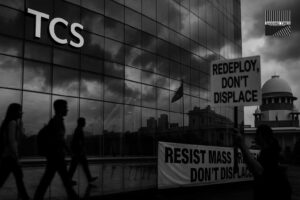






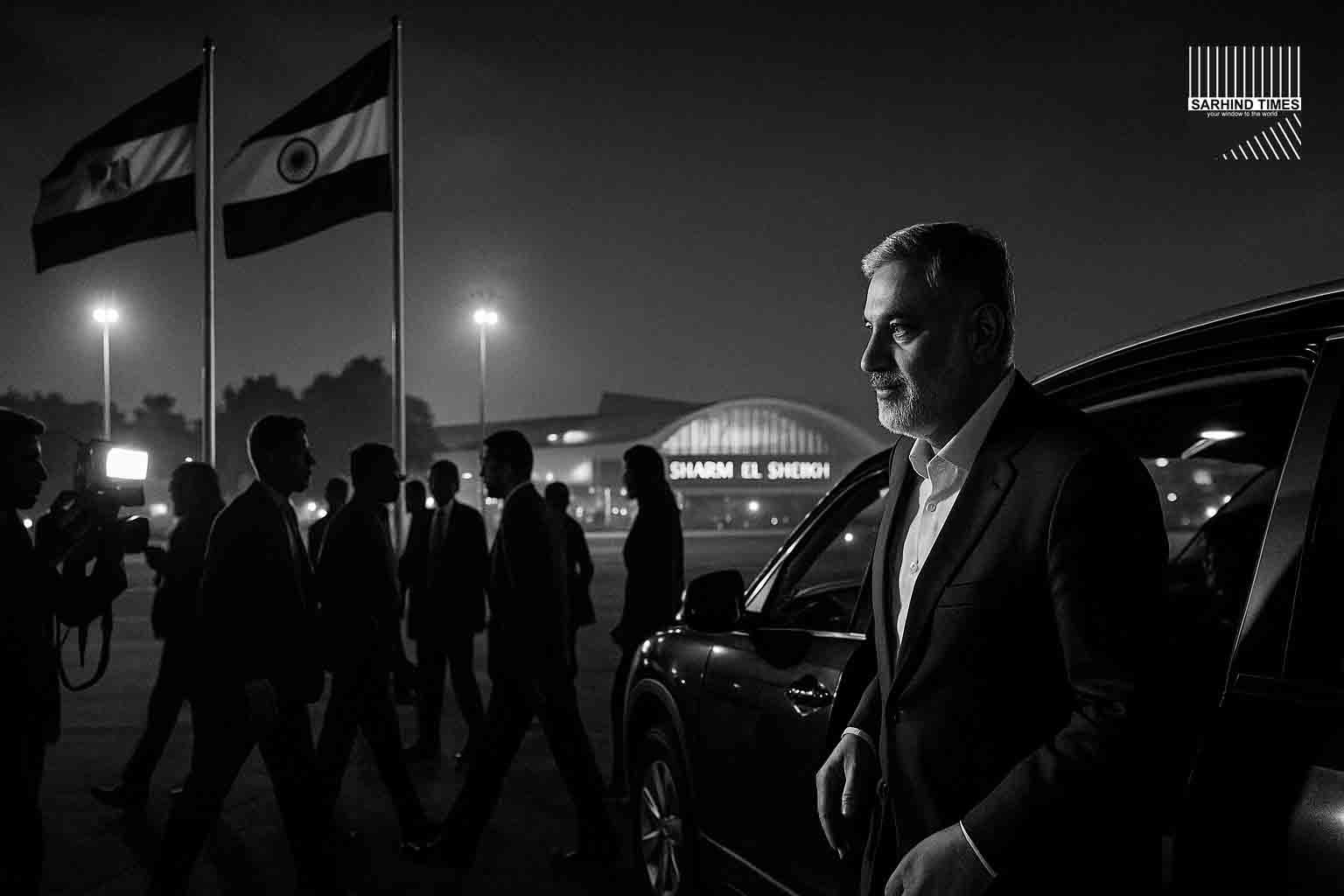
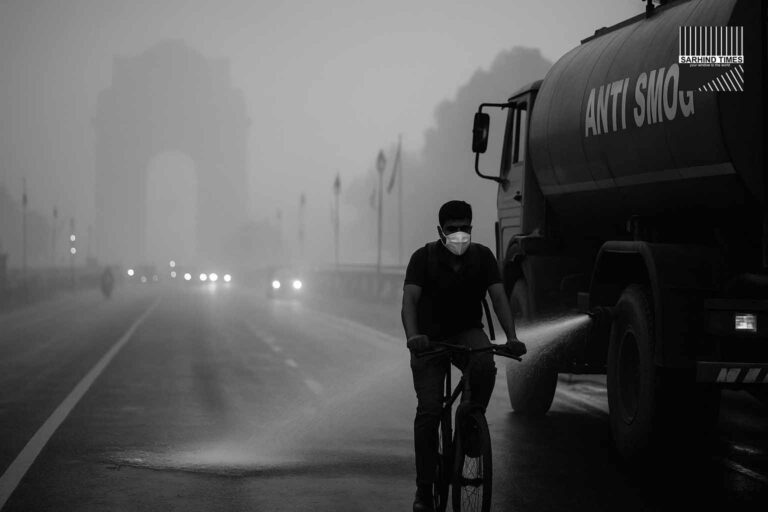
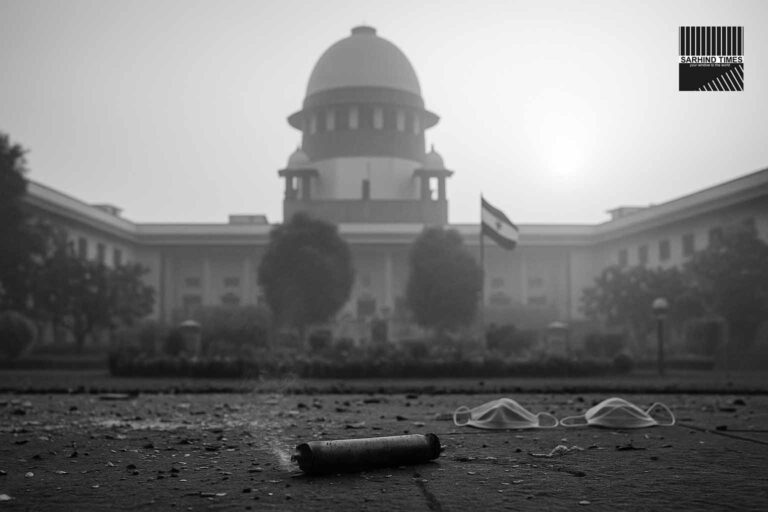
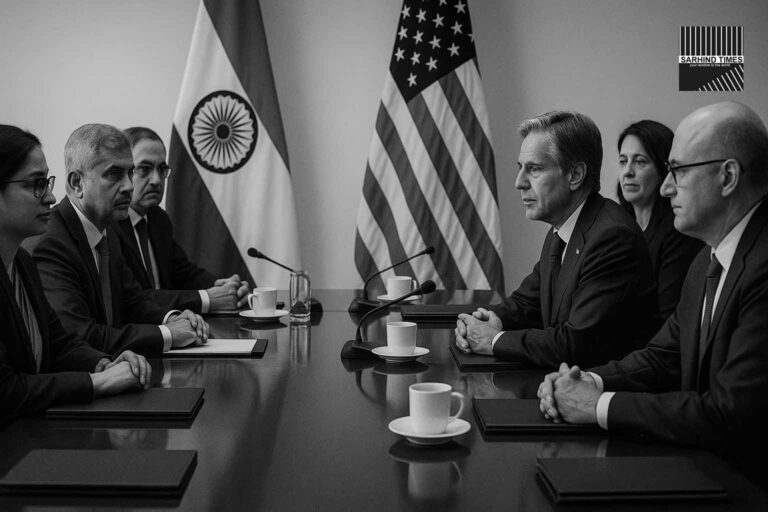
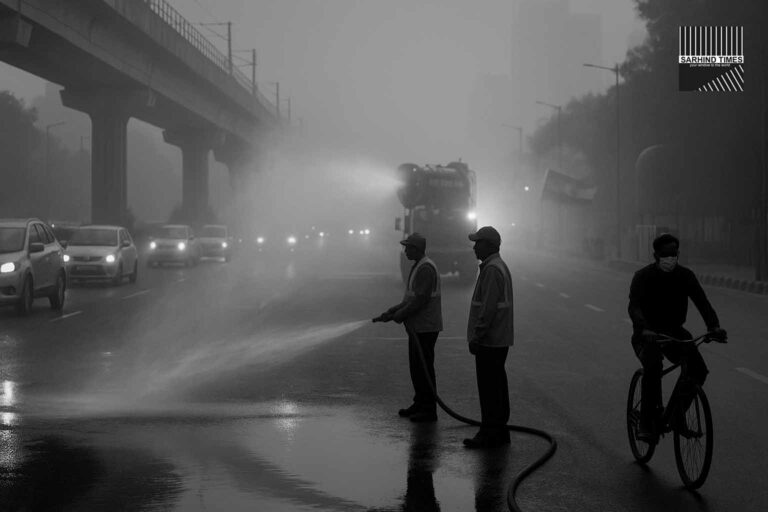


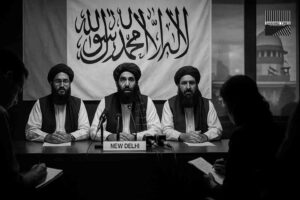

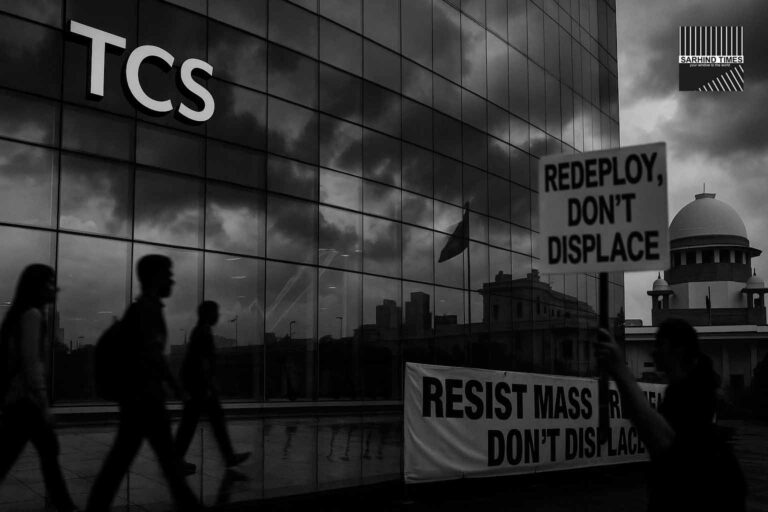
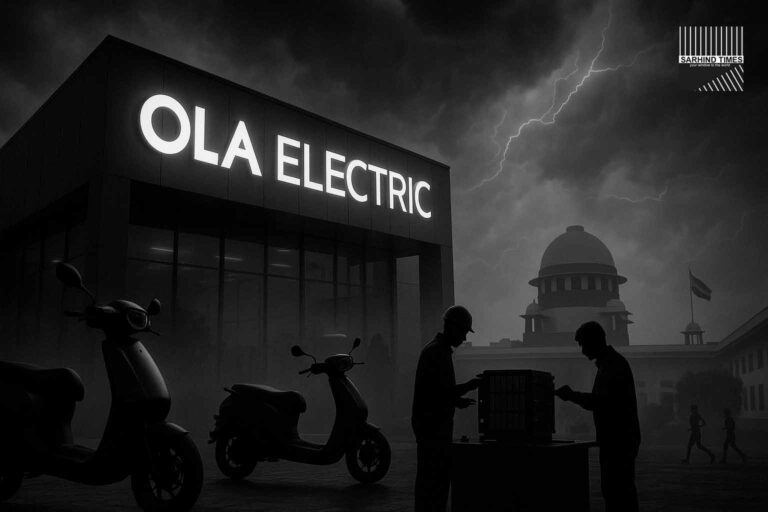
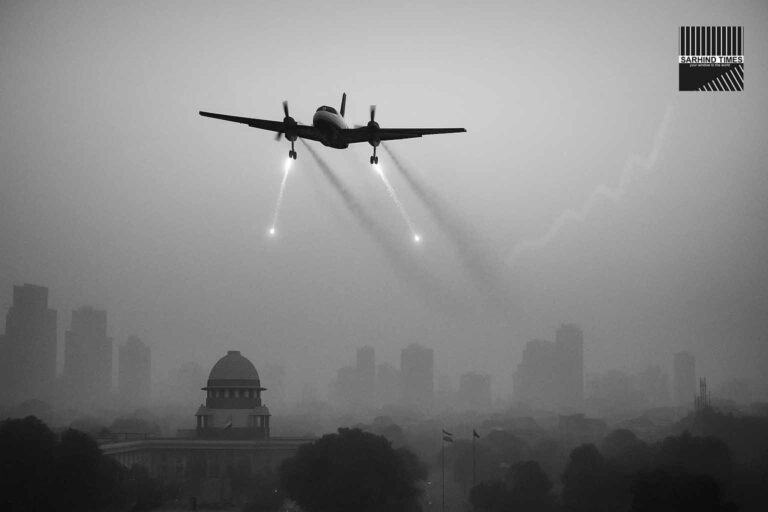
+ There are no comments
Add yours